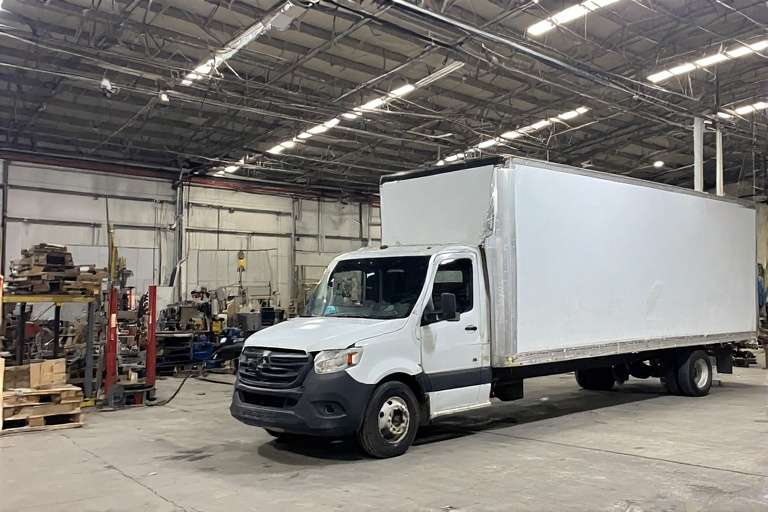Maximizing Efficiency and Protection with Insulated Truck Body Panels
The logistics and transportation industries rely heavily on specialized materials to ensure the safe, efficient, and temperature-controlled transport of goods. Among these innovations, insulated truck body panels have emerged as a critical component for fleet operators and manufacturers alike. These advanced panels help maintain internal temperatures, reduce energy consumption, and extend the longevity of cargo storage areas.
In this article, we explore the construction, advantages, and applications of insulated truck body panels, along with a comparison to other material options like stainless steel faced plywood.
What Are Insulated Truck Body Panels?
Insulated truck body panels are composite panels designed to offer superior thermal insulation. Typically made with a core of polyurethane (PU) or expanded polystyrene (EPS) foam, these panels are sandwiched between durable outer skins—commonly fiberglass, aluminum, or other robust materials.
They are a vital part of refrigerated and climate-sensitive transport vehicles, ensuring perishable items such as food, pharmaceuticals, and chemicals remain within required temperature ranges during transit.
To explore more about these panels, visit: insulated truck body panels.
Key Benefits of Insulated Truck Body Panels
1. Superior Thermal Insulation
The main function of insulated panels is temperature control. With low thermal conductivity materials at their core, these panels help minimize temperature fluctuations, keeping cargo cool or warm as needed.
2. Lightweight and Durable
Despite their insulation properties, insulated panels are relatively lightweight, helping reduce fuel consumption. At the same time, they offer structural integrity and impact resistance, ideal for rough transport conditions.
3. Moisture and Corrosion Resistance
Many insulated panels are faced with waterproof or anti-corrosive surfaces, making them ideal for humid or challenging environments. This feature extends the lifespan of the vehicle’s cargo area and reduces maintenance costs.
4. Energy Efficiency
By maintaining internal temperatures with less reliance on active cooling or heating systems, insulated truck body panels contribute to improved fuel economy and reduced emissions—an important consideration for eco-conscious businesses.
Applications of Insulated Truck Body Panels
Refrigerated Trucks: Critical for transporting perishable foods, dairy, meat, and frozen goods.
Pharmaceutical Transport: Used to maintain required temperatures for temperature-sensitive medications and vaccines.
Catering and Mobile Kitchens: Provide a controlled environment for food preparation and storage.
Specialized Delivery Vehicles: Including floral delivery, electronics, or any other product requiring controlled climates.
How Do They Compare to Stainless Steel Faced Plywood?
While insulated truck body panels are engineered for temperature control, stainless steel faced plywood excels in areas requiring impact resistance, hygiene, and a sleek finish.
Learn more about this alternative here: stainless steel faced plywood.
Comparison Highlights:
Feature Insulated Truck Body Panels Stainless Steel Faced Plywood
Thermal Insulation Excellent Minimal
Weight Lightweight Heavier (due to steel facing)
Hygiene & Cleanability Good (depending on facing) Excellent (non-porous steel surface)
Durability High Very High
Best Use Temperature-sensitive transport Hygienic or impact-heavy environments
Choosing between the two depends on the application: use insulated panels for thermal protection and stainless steel faced plywood for rugged durability and sanitation.
Environmental Impact and Cost Efficiency
Insulated truck body panels contribute to sustainability by reducing reliance on mechanical refrigeration, thereby lowering carbon emissions. Their lightweight nature also cuts down on fuel usage. Additionally, many manufacturers now produce these panels using eco-friendly materials and processes.
Over time, the energy savings and cargo protection benefits offered by insulated panels can translate into substantial cost savings, making them a smart long-term investment for logistics providers.
Conclusion
In the modern world of logistics and mobile services, insulated truck body panels play a vital role in ensuring cargo safety, reducing energy consumption, and improving vehicle performance. Whether you operate a fleet of delivery trucks or a single refrigerated vehicle, upgrading to insulated panels can offer a measurable return on investment.
To learn more or source high-quality panels for your needs, visit:
insulated truck body panels.
For other specialized materials like stainless steel faced plywood, consider their superior strength and sanitary benefits for different operational environments.









